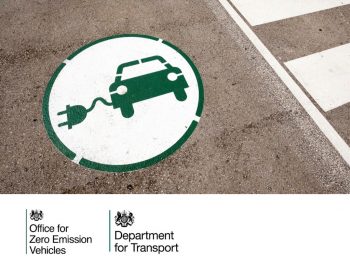Free leaflet debunks 19 common misconceptions on EVs
A free leaflet that quashes common myths on everything from electric vehicle charging to production is now available from the Government.

The guide is available both online and in print
Launched both online and in print, the guide from the Department for Transport and Office for Zero Emission Vehicles provides a valuable resource that fleets can download and use to answer drivers’ questions on EVs.
While EV technology, vehicles and infrastructure have developed rapidly in recent years, the DfT and OZEV say people still understandably have a lot of questions about this new technology.
Areas under focus in the leaflet include:
Myth: Electric vehicles are too expensive.
Reality: The leaflet points to the lower running costs for EVs, plus their tax incentives. It also notes that EV purchase prices are generally forecast to meet parity with petrol and diesel vehicles in the next few years or so.
Myth: EVs do not have the battery range to travel as far as people need
Reality: 99% of car journeys in England are under 100 miles, which means most drivers’ needs are easily met by an EV. For those travelling further, there are over 20 models available with a quoted 200-plus mile range. There are also some new electric cars coming soon with a range of over 300 miles and the technology continues to improve.
Myth: Building an EV generates more greenhouse gas emissions than it saves
Reality: This has been debunked in numerous well- respected studies. A new battery-electric car has just a third of the lifetime greenhouse gas emissions of an equivalent new petrol car, even when taking into account battery production and disposal. EVs are getting progressively cleaner as electricity generation decarbonises.
Myth: The battery will need replacing after five years
Reality: EVs are already proving their longevity in daily use across the UK’s roads and there is no evidence to suggest their lifespans are any different from a petrol or diesel vehicle. Most EV batteries have warranties of around eight years (or 100,000 miles) but are expected to last much longer, and their lifespan continues to improve.
The leaflet also includes advice about towing, supply chains for battery materials and charge points.
To access the leaflet, click here.













DAVID ROBERTS11. Jul, 2022
Thank you for your article re EV vehicles …
Its a shame they dont listen to what the mechanics say that work on them … replacing batteries is very common way before their due date ..
Van users saying that they cant make their delivery runs unless they turn everything off ….
A local dispatch firm close to us cant do a congleton run and back because is runs out of battery power on the A34 –
I am a big believer in hybrid and hydrogen cell vehicles … but sorry if you believe everything the government pushes out then sorry ,fool you..
Why have the government not released the electric grid problems and the incapacity to supply an electric charge. When you speak to the power station engineers then you get to hear the real story ..
I am all for greener air and automotive but please dont lie and force things like DPF’s , ADblue and more alike on us … putting plasters on a dam wall isnt a solution and in the long run creates a bigger carbon foot print than before
I know you will not post this but I do hope you absorb it …